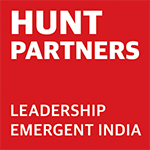The Digital payment transformation continues in India, where we now have more than 50% of India’s digitally active consumers adopting Fintech, second only to China’s 69%. Entry of big players like Amazon, Google, PayPal and Uber, India’s digital payments space has morphed into a $500 Bn playfield. No wonder that in the recent Global Fintech Report, PwC found that 88% of legacy banking organizations fear losing revenue to financial technology companies in areas such as payments, money transfers and personal loans.
Wallets & Payment Banks
To provide an impetus to cashless transactions, the government introduced tax rebates for traders accepting more than 50% as electronic payment. True Caller acquiring The Chillr App points to integrating payment services as the core offering. Wallet transactions are set to shoot past the 1 trillion mark mid 2018, even as companies grapple with securing “Know Your Customer” (KYC) requirements.
The mobile wallet is evolving to be a complete financial management tool, creating a reliable marketplace that offers diversity of payments, travel, savings, insurance, mutual funds, credit and much more and wallets like Paytm, Mobikwik, PhonePe are shifting their strategies to become a single point for financial services. Not only this, this space will see a lot of consolidation going forward.
Financial Technology providers such as Euronet, FIS and Fiserv are seeing a strong growth on account of the new Savings & Payment Banks that have started operations in the last 12 months. However, given the low density of bank branches and ATMs in rural areas, there is significant potential for banking products to expand in these geographies. Payment banks need to heavily invest in marketing and distribution to penetrate the hinterland. Experienced talent in sales and distribution in the non-metros will be key to make this possible.
Digital Lending
Alternate lending including SME lending and P2P lending, start-ups also took the centre stage this year with players like ZestMoney, Cointribe, Neogrowth, Capital Float, Lendingkart, CashCare, Indifi, Rubique, Faircent cashing in on the opportunity. MasterCard & Unilever launched a joint digital lending platform for start-ups, to help micro-entrepreneurs overcome the cash constraints that limit their ability to buy and sell more products and ultimately grow their businesses.
As the online/digital lending expands in scope and customer acquisition, Product Development, Credit underwriting and Technology to automate Operations are key areas where talent will be in demand.
Online gateways
India payment gateway market is expected to grow close to US$ 2 Bn by 2025. Major e-commerce companies have started to develop their own payment gateways, to help them improve the margins. Visa is investing in BillDesk, valued at $1.5-2 Bn, BillDesk is the largest online payments processing company in the country and competes with the likes of Naspers-backed PayU, CCAvenue and RazorPay. It should help Visa establish its position in the payments ecosystem which has seen disruption like UPI. We will continue to see requirement for high quality talent in this space as players fight in a very competitive market.
Acquisitions
• Ebix Inc that made headlines when it poured $123 Mn (INR 800 Cr) in Mumbaibased payments solution firm ItzCash, against an 80% stake in the company.
• Companies receiving funding include insurance marketplace PolicyBazaar, SME lending platform Capital Float & Neogrowth, and payments firms Mswipe Technologies and Razorpay.
The transaction value for the Indian Fintech sector is likely to touch USD 73 Bn in 2020, growing at a five-year CAGR of 22%. All the players in the ecosystem will have to keep investing in technology for processing huge volumes of data, analysing real-time information and taking instant decisions. They will also have to get talent with deep understanding of digital & technology tools and the demand for talent will not slow down.
Another key area is customer experience as business will continue to move closer to customers. The space will also continue to see innovation-led disruption as services become more personalised. Alliances will be the order of the day as companies will explore offering comprehensive solutions.
